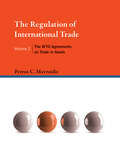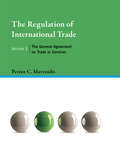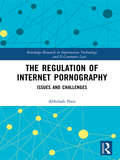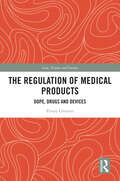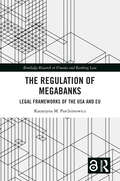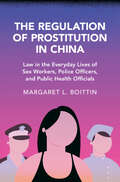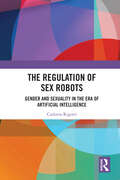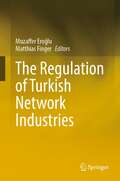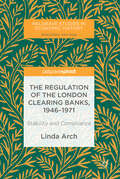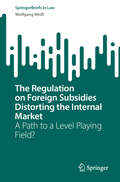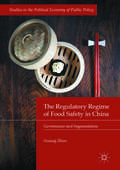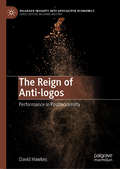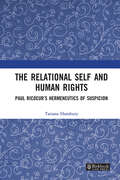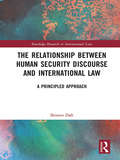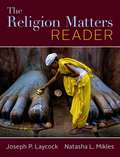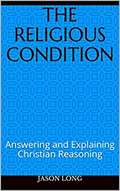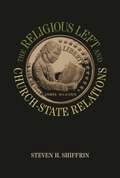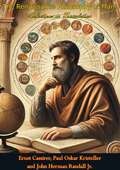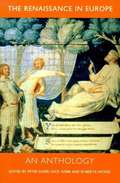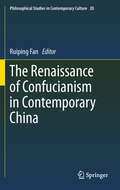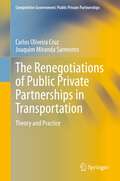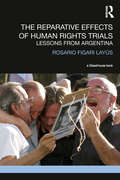- Table View
- List View
The Regulation of International Trade, Volume 2: The WTO Agreements on Trade in Goods
by Petros C. MavroidisA detailed examination of WTO agreements regulating trade in goods, discussing legal context, policy background, economic rationale, and case law. The General Agreement on Tariffs and Trade (GATT) has extended its institutional arsenal since the Kennedy round in the early 1960s. The current institutional design is the outcome of the Uruguay round and agreements reached in the ongoing Doha round (begun in 2001). One of the institutional outgrowths of GATT is the World Trade Organization (WT0), created in 1995. In this book, Petros Mavroidis offers a detailed examination of WTO agreements regulating trade in goods, discussing legal context, policy background, economic rationale, and case law. Each chapter examines a given legal norm and its subsequent practice. In particular, he discusses agreements dealing with customs clearance; “contingent protection” instruments, which allow WTO members unilaterally to add to the negotiated amount of protection when a certain contingency (for example, dumping) has occurred; TBT (Technical Barriers to Trade) and SPS (Sanitary and Phyto-sanitary Measures) agreements, both of which deal with such domestic instruments as environmental, health policy, or consumer information; the agreement on Trade Related Investment Measures (TRIM); sector-specific agreements on agriculture and textiles; plurilateral agreements (binding a subset of WTO membership) on government procurement and civil aviation; and transparency in trade relations. This book's companion volume examines the GATT regime for international trade.
The Regulation of International Trade, Volume 3: The General Agreement on Trade in Services
by Petros C. MavroidisA comprehensive analysis of GATS that considers its historical context, the national preferences that shaped it, and a path to a GATS 2.0.The previous two volumes in The Regulation of International Trade analyzed the General Agreement on Tariffs and Trade (GATT), the first successful agreement to generate multilateral trade liberalization, and the World Trade Organization (WTO), for which the GATT laid the groundwork. In this third volume, Petros Mavroidis turns to the General Agreement on Trade in Services (GATS), a WTO treaty that took effect in 1995, and offers a comprehensive analysis that considers the historical context of the GATS, the national preferences that shaped it, and a path to a GATS 2.0.
The Regulation of Internet Pornography: Issues and Challenges (Routledge Research in Information Technology and E-Commerce Law)
by Abhilash NairThe regulation of pornography has always been a contentious issue, which has sparked wide-ranging debates surrounding the acceptability and place of pornography in society. The use of the internet to distribute and access pornography has magnified this debate and has presented a number of challenges for the law in terms of effective and proportionate regulation. Following unsuccessful attempts by states to transpose traditional laws to cyberspace, a new and radical regulatory framework eventually evolved for regulating internet pornography. In this process, the focus of the law has changed from merely controlling the publication and distribution of obscene material to a model that aims to deter private consumption of illegal content. In addition, various self- and co-regulatory initiatives have been introduced with the involvement of non-state actors, imposing a certain degree of de facto liability on intermediaries, all of which raise interesting issues. This book examines the relevant regulatory responses to internet pornography, with particular reference to the UK, but also drawing comparisons with other countries where relevant. It argues that the internet has fundamentally, and in many ways irreversibly, changed the regulation of pornography. Classifying internet pornography into three broad categories – child pornography, extreme pornography, and adult pornography – the book provides an in-depth analysis of the legal issues involved in regulating internet pornography, and argues that the notions of obscenity and indecency on their own will not provide an adequate basis for regulating online pornography. The book identifies the legitimising factors that will lend credibility and normative force to the law in order to successfully regulate pornography in cyberspace. It is the only comprehensive text that rigorously addresses the regulation of internet pornography as a whole, and offers valuable insights that will appeal to academics, students, policy makers, and those working in the areas of broader internet governance and online child protection.
The Regulation of Medical Products: Dope, Drugs and Devices (Law, Science and Society)
by Penny GleesonThis book develops a theoretical framework for examining and assessing the regulatory arrangements for medical products.Since the first half of the 20th century, the regulation of pharmaceuticals, medical devices and, more recently, biologicals have been controlled in many jurisdictions by specific regulatory regimes and agencies. Their regulatory mandates are similar – to ensure the quality, safety and efficacy of medical products. This book provides a timely and relevant assessment of the complexities of medical regulatory regimes, by drawing on a particular theory of political legitimacy. In this respect, the book adopts a ‘dialogic’ approach – according to which a shared set of normative beliefs and values are formulated – as a theoretical ‘tool’ to identify deficiencies in the regulatory arrangements for medical products. Drawing on several Australian cases studies, characterised by divergent normative perspectives, the book develops its dialogic approach in order to challenge the usual legitimation of regulatory regimes from the perspective of science alone. Specifically, it maintains that such regimes need to embrace a normative pluralism that admits a diversity of types and sources of knowledge.This evaluation of the increasingly influential domain of medical regulation will appeal to a range of scholars and practitioners working in law, public health, politics and science and technology studies.
The Regulation of Megabanks: Legal frameworks of the USA and EU (Routledge Research in Finance and Banking Law)
by Katarzyna ParchimowiczGlobal systemically important banks (G-SIBs) are the largest, most complex and, in the event of their potential failure, most threatening banking institutions in the world. The Global Financial Crisis (GFC) was a turning point for G-SIBs, many of which contributed to the outbreak and severity of this downturn. The unfolding of the GFC also revealed flaws and omissions in the legal framework applying to financial entities. In the context of G-SIBs, it clearly demonstrated that the legal regimes, both in the USA and in the EU, grossly ignored the specific character of these institutions and their systemic importance, complexity, and individualism. As a result of this omission, these megabanks were long treated like any other smaller banking institutions. Since the GFC, legal systems have changed a lot on both sides of the Atlantic, and global and national lawmakers have adopted new rules applying specifically to G-SIBs to reduce their threat to financial stability. This book explores whether the G-SIB-specific regulatory frameworks are adequately tailored to their individualism in order to prevent them from exploiting overly general rules, as they did during the GFC. Analyzing the specific character and individualism of G-SIBs, in relation to their history, normal functioning, as well as their operations during the GFC, this book discusses transformation of banking systems and the challenges and opportunities G-SIBs face, such as Big Tech competitors, climate-related requirements, and the COVID-19 pandemic. Taking a multidisciplinary approach which combines financial aspects of operations of G- SIBs and legal analysis, the book describes G-SIB-oriented legal frameworks of the EU and the USA and assesses whether G-SIB individualism is adequately reflected, analyzing trends in supervisory action when it comes to discretion in the G-SIB context, all in order to contribute to the ongoing discussions about international banking law, its problems, and potential remedies to such persistent flaws.
The Regulation of Prostitution in China: Law in the Everyday Lives of Sex Workers, Police Officers, and Public Health Officials (Cambridge Studies in Law and Society)
by Margaret L. BoittinIn this compelling book, Margaret L. Boittin delves into the complex world of prostitution in China and how it shapes the lives of those involved in it. Through in-depth fieldwork, Boittin provides a fascinating case study of the role of law in everyday life and its impact on female sex workers, street-level police officers, and frontline public health officials. The book offers a unique perspective on the dynamics between society and the state, revealing how the laws that govern sex work affect those on the frontlines. With clear and accessible prose, this book is a must-read for anyone interested in law, state-society relations, China, and sex work.
The Regulation of Sex Robots: Gender and Sexuality in the Era of Artificial Intelligence
by Carlotta RigottiThis book proposes a framework for regulating sex robots – human-like machines designed to engage emotionally and sexually with users through customisable, often AI-powered features.Although they occupy a niche in the adult entertainment and technology industries, sex robots raise complex issues that extend beyond current debates. To date, sex robots are frequently portrayed either as tools for societal liberalisation and remedies for sexual inequalities or as mediums for sexual commodification and personal degradation. These conflicting perspectives echo longstanding feminist debates, which often lead to polarisation and normative deadlock, overlooking the lived experiences of individuals beyond binary and heteronormative frameworks. The evolving legal landscape further complicates these issues. Regulatory bodies, such as the European Union, struggle to keep pace with emerging technologies and human-machine interactions. Their tendency to evaluate innovations as products with hypothetical risks – through a detached, top-down approach – fails to address the intersectional dynamics of privilege and oppression. This book enriches the conversation by moving beyond binary narratives of emancipation and oppression. It challenges the socio-legal construction of gender and sexuality, critiques regulatory inertia and morality policing, and advocates for nuanced, context-aware regulation of sex robots.It will appeal to researchers in socio-legal studies, law and technology, gender and law, as well as those in sociology and gender studies, offering critical insights into the regulation of gendered and sexualised technologies and their broader societal implications.
The Regulation of Turkish Network Industries
by Matthias Finger Muzaffer EroğluThis book brings together academics and experts on Turkish network industries. It provides fundamental information on the current developments regarding regulation of the different network industries in Turkey. Turkey has gone through a liberalization process in most of the network industries during the past 20 years. In most of them, independent regulatory authorities have been established, but some network industries are still remaining under the central or local government regulatory regime. As a result, there is now a very complicated regulatory regime in place which makes Turkey’s regulatory system difficult to understand for practitioners, academics, lawyers, researchers and investors. This book offers unique insight into Turkey’s regulatory regime in various network industries. It also offers a historical background to regulation, a description of the current regulatory regimes, as well as an analysis of the foreseeable evolutions. The book covers all the important network industries in Turkey. No similar book is available on the market to date. Moreover, the book provides an extensive analysis of the current regulatory regimes in the energy, the transport, and the telecommunications industries. This book should be of interest to anyone wishing to understand Turkish regulation and will be very helpful handbook to researchers who are interested in regulation of network industries not only in Turkey but also in other developing countries, as Turkey is quite representative of other emerging countries. Readers will acquire a thorough understanding of the state of play of the Turkish network industries and their regulation.
The Regulation of the London Clearing Banks, 1946–1971: Stability And Compliance (Palgrave Studies in Economic History)
by Linda ArchThis book explores the way in which banks were regulated in the UK in the period from 1946 until 1971. It focuses upon a group of 11 banks known as the London clearing banks. These banks included the ‘Big Five’ – Barclays, Lloyds, Midland, National Provincial and Westminster – and were the equivalent to today’s retail banks.The time period in question is an intriguing one in the history of banking and bank regulation in that the banking system was very stable, but the regulatory framework was less dependent upon codified forms of regulation than it is today. Having explored the nature of clearing bank regulation, Arch goes on to consider the rationale behind it, as well as its consequences. She concludes by reflecting upon the nature of bank regulation since the global financial crisis. This title is essential reading for academics with an interest in banking history and bank regulation, for practicing bank regulators and for regulatory policymakers.
The Regulation on Foreign Subsidies Distorting the Internal Market: A Path to a Level Playing Field? (SpringerBriefs in Law)
by Wolfgang WeißThe book shows that the Regulation pursues its objective of ensuring greater equality of competitive conditions on the EU´s Internal Market only by accepting new bureaucracy, establishing the need for complex and extensive assessments and raising considerable legal uncertainties as a result of undefined legal terms and comprehensive Commission discretion. The EU legislators, the Council and the European Parliament, in June 2022 adopted a new regulation that entered into force 12 January 2023: Regulation 2022/2560 on foreign subsidies distorting the internal market. This book analyses the regulation in more detail. To this end, after the brief introduction, its rationale and core contents are first presented. Then, its scope of application is to be explored in more detail, as the Regulation was criticised early on with regard to its compatibility with international law, which has an intense bearing on the substantive and personal scope of application of the Regulation. Subsequently the central regulatory concepts of the Regulation will be presented and then the specific rules for concentrations and public procurement procedures analysed. The conclusion will summarise the findings. In view of the likely backlash from powerful third countries, there is a risk of new distortions to the detriment of EU companies´ activities in third country markets.
The Regulatory Aftermath of the Global Financial Crisis
by Niamh Moloney Jennifer G. Hill Ethiopis Tafara Jr. Eilís Ferran Jr.The EU and the US responded to the global financial crisis by changing the rules for the functioning of financial services and markets and by establishing new oversight bodies. With the US Dodd-Frank Act and numerous EU regulations and directives now in place, this book provides a timely and thoughtful explanation of the key elements of the new regimes in both regions, of the political processes which shaped their content and of their practical impact. Insights from areas such as economics, political science and financial history elucidate the significance of the reforms. Australia's resilience during the financial crisis, which contrasted sharply with the severe problems that were experienced in the EU and the US, is also examined. The comparison between the performances of these major economies in a period of such extreme stress tells us much about the complex regulatory and economic ecosystems of which financial markets are a part.
The Regulatory Landscape in the EU for Dairy Products Derived from Precision Fermentation: An Analysis on the Example of Cheese (SpringerBriefs in Law)
by Kai P. Purnhagen Federica Ronchetti Laura SpringerThis book assesses the EU legal framework applicable to dairy products obtained through precision fermentation. It maps the authorisation and labelling requirements for these products to be placed on the EU market. It compares these provisions to those governing the food markets in the USA and Singapore, which are considered to be more innovation-friendly. At the time of writing, the precision-fermented dairy sector is still in the developmental phase, with only a few precision-fermented dairy alternatives available on the market, none of which are present in the EU. Regulatory uncertainty has been cited as significant obstacle for food business operators seeking to introduce alternative protein products in the EU. The book confirms these reports, as the current EU regulatory framework presents several legal uncertainties that are challenging for food business operators to overcome. Broadly speaking, there are two authorisation frameworks applicable to dairy products obtained through precision fermentation in the EU. The choice between these frameworks depends on the presence of genetically modified organisms (GMOs) or residues thereof in the final product. If such GMOs or residues are present, the pre-market authorisation procedure is governed by the Genetically Modified Food and Feed Regulation (GMFR). If the final product does not contain any GMOs or residues, it falls under the scope of the Novel Food Regulation (NFR), and the pre-market authorisation procedure is governed accordingly. Both of these authorisation pathways entail high regulatory requirements, which can pose challenges for the development of the precision fermentation sector. Despite the difficulty in accurately classifying products, it is crucial for food business operators to comprehend the applicable legal framework early in the product development process, given that the authorisation paths differ in their standards. In addition to pre-market authorisation requirements, companies must address labelling issues. Food labelling shall provide a basis for consumers to make informed choices in relation to the foods they consume. The primary objective of EU food labelling law is to prevent consumer deception , making it crucial for dairy products and their animal-free alternatives, to adhere to a stringent naming law as stipulated in the Common Market Organisation and specific accompanying legislation. Moreover, it is imperative to consider regulations regarding the use of health and nutrition claims, as well as labels such as “vegan” or “organic”, etc. Furthermore, the labelling of novel foods and genetically modified foods may necessitate mandatory information specified in the authorisation process. The book serves as a comprehensive guideline for food business operators involved in the production of precision-fermented dairy alternatives, aiding them in navigating the intricate European regulatory landscape.
The Regulatory Regime of Food Safety in China
by Guanqi ZhouThis book examines the decade from 2004 to 2013 during which people in China witnessed both a skyrocketing number of food safety crises, and aggregating regulatory initiatives attempting to control these crises. Multiple cycles of "crisis - regulatory efforts" indicated the systemic failure of this food safety regime. The book explains this failure in the "social foundations" for the regulatory governance of food safety. It locates the proximate causes in the regulatory segmentation, which is supported by the differential impacts of the food regulatory regime on various consumer groups. The approach of regulatory segmentation does not only explain the failure of the food safety regime by digging out its social foundation, but is also crucial to the understanding of the regulatory state in China.
The Reign of Anti-logos: Performance in Postmodernity (Palgrave Insights into Apocalypse Economics)
by David HawkesThe concept of ‘performativity’ has risen to prominence throughout the humanities. The rise of financial derivatives reflects the power of the performative sign in the economic sphere. As recent debates about gender identity show, the concept of performativity is also profoundly influential on people’s personal lives. Although the autonomous power of representation has been studied in disciplines ranging from economics to poetics, however, it has not yet been evaluated in ethical terms. This book supplies that deficiency, providing an ethical critique of performative representation as it is manifested in semiotics, linguistics, philosophy, poetics, theology and economics. It constructs a moral criticism of the performative sign in two ways: first, by identifying its rise to power as a single phenomenon manifested in various different areas; and second, by locating efficacious representation in its historical context, thus connecting it to idolatry, magic, usury and similar performative signs. The book concludes by suggesting that earlier ethical critiques of efficacious representation might be revived in our own postmodern era.
The Relational Self and Human Rights: Paul Ricoeur’s Hermeneutics of Suspicion
by Tatiana HansburyThis book takes up Paul Ricoeur’s relational idea of the self in order to rethink the basis of human rights. Many schools of critical theory argue that the idea of human rights is based on a problematic conception of the human subject and the legal person. For liberals, the human is a possessive and self-interested individual, such that others are either tools or hurdles in their projects. This book offers a novel reading of subjectivity and rights based on Paul Ricœur’s re-interpretation of human subjectivity as a relational concept. Taking up Ricoeur’s idea of recognition as a ‘reciprocal gift’, it argues that gift exchange is the relation upon which authentic, non-abstract, human subjectivity is based. Seen in this context, human rights can be understood as tokens of mutual recognition, securing a genuinely human life for all. The conception of human rights as gift effectively counters their moral individualism and possessiveness, as the philosophical anthropology of an isolated ego is replaced by that of a related, dependent and embedded self. This original reinterpretation of human rights will appeal to scholars of legal theory, jurisprudence, politics and philosophy.
The Relationship between Human Security Discourse and International Law: A Principled Approach (Routledge Research in International Law)
by Shireen DaftThe concept of human security has emerged in international relations and policy as an idea which not only seeks to relocate the focus of international society on the individual, but also challenges the current priorities of the international community. In particular it places emphasis on promoting and facilitating a nexus between security, development and human rights. It is potentially a paradigm in the making, gaining considerable momentum within the UN, international relations scholarship and regional bodies. And yet by-and-large it continues to be unexplored by the international legal community, despite the success of a number of international treaties being attributed to the discourse. This book seeks to address this gap, and establish the nature of the relationship between human security discourse and international law, determining whether human security can meaningfully contribute to the international legal framework. To determine this, the book analyses the core principles of human security discourse and examines the degree to which they find parallels in the existing normative structure of international law. The book examines the how the broad-narrow debate that dominates human security discourse has played out in international law-making. It goes on to consider the processes for the creation of so called ‘human security’ treaties in order to determine a blueprint for future development of international human security treaty law. In concluding Shireen Daft sets out a structured principled approach through which international legal scholarship can engage with human security, highlighting the ways in which engagement between the two fields can be sustained.
The Relevant Market in International Economic Law
by Christian A. MelischekThis book provides what international trade law has hitherto lacked: a coherent analysis of 'product likeness' under Article III of the GATT. Christian A. Melischek develops an economic approach to the interpretation of 'like' products on the basis of a comparative analysis with antitrust theories on market definition. Not only does he propose a specific substantive economic test to render the notion of product likeness operational, but he also examines the institutional and procedural frameworks for expert economic evidence necessary to implement an economic approach to the interpretation of product likeness. On a methodological level, the book adds a new interdisciplinary dimension to the legal debate by exploring the use of quantitative and econometric methods for the implementation of the proposed economic test.
The Religion Matters Reader
by Joseph Laycock Natasha MiklesThe Religion Matters Reader is an innovative (and inexpensive) complement to Stephen Prothero’s pathbreaking and enormously teachable introductory text. The readings are accessible, diverse, and tied to the organizing principles of RELIGION MATTERS. Each chapter includes five readings—problem/solution, technique, two exemplar profiles, and a controversy. A rich teaching tool created by the same authors who created the text’s supporting media resources.
The Religious Condition: Answering And Explaining Christian Reasoning
by Jason LongThe Bible is not the word of God. The Religious Condition is a broad look at the factors that drive Christians to believe otherwise. This part-philosophical, part-scientific overview explores the psychological and sociocultural influences that subtly provoke Christians to maintain their antiquated views of the universe. While billions of people around the world have merely assumed the solid validity of the Bible, The Religious Condition presents a series of profound questions regarding the implications of such premature assuredness. In addition to the conclusions from actual psychological studies that support these viewpoints, covered topics include the various ways that Christians approach scientific conflicts, the defense of a perfectly moral god who commits immoral acts, the illogical methods of argumentation that Christians invoke in the maintenance and defense of their beliefs, and disingenuous methods utilized by those who wish to defend the idea that religious beliefs are based on reason instead of faith. The Religious Condition answers actual reader responses to the previous works of Jason Long, a former Christian. His fresh experiences in the church and advanced levels of educational enlightenment make him the perfect individual to present this vehemently unpopular, yet undeniably appealing topic.
The Religious Left and Church-State Relations
by Steven H. ShiffrinIn The Religious Left and Church-State Relations, noted constitutional law scholar Steven Shiffrin argues that the religious left, not the secular left, is best equipped to lead the battle against the religious right on questions of church and state in America today. Explaining that the chosen rhetoric of secular liberals is poorly equipped to argue against religious conservatives, Shiffrin shows that all progressives, religious and secular, must appeal to broader values promoting religious liberty. He demonstrates that the separation of church and state serves to protect religions from political manipulation while tight connections between church and state compromise the integrity of religious institutions. Shiffrin discusses the pluralistic foundations of the religion clauses in the First Amendment and asserts that the clauses cannot be confined to the protection of liberty, equality, or equal liberty. He explores the constitutional framework of religious liberalism, applying it to controversial examples, including the Pledge of Allegiance, the government's use of religious symbols, the teaching of evolution in public schools, and school vouchers. Shiffrin examines how the approaches of secular liberalism toward church-state relations have been misguided philosophically and politically, and he illustrates why theological arguments hold an important democratic position--not in courtrooms or halls of government, but in the public dialogue. The book contends that the great issue of American religious politics is not whether religions should be supported at all, but how religions can best be strengthened and preserved.
The Renaissance Philosophy of Man: Selections in Translation
by Ernst CassirerExplore the profound and transformative ideas of the Renaissance with The Renaissance Philosophy of Man: Selections in Translation. This essential anthology brings together pivotal texts from some of the most influential thinkers of the Renaissance, offering readers a comprehensive insight into the philosophical currents that shaped this remarkable period in history.Edited by renowned scholars Ernst Cassirer, Paul Oskar Kristeller, and John Herman Randall Jr., this collection presents carefully selected translations of key philosophical works that highlight the diverse and dynamic nature of Renaissance thought. The book covers a wide array of topics, from humanism and individualism to the relationship between humanity and the divine.The Renaissance Philosophy of Man features writings from seminal figures such as Petrarch, Pico della Mirandola, Marsilio Ficino, and Giovanni Pontano. Each selection is accompanied by insightful introductions and annotations that provide historical context and clarify the significance of the ideas presented. The editors' scholarly expertise ensures that readers gain a deep and nuanced understanding of the philosophical developments of the time.The anthology delves into the central themes of Renaissance philosophy, including the dignity of man, the potential for human achievement, and the revival of classical learning. These texts reflect the era's optimism and its belief in the power of human reason and creativity. The Renaissance thinkers' quest for knowledge and their engagement with ancient sources laid the groundwork for modern philosophy and science.Join Ernst Cassirer, Paul Oskar Kristeller, and John Herman Randall Jr. in exploring the rich philosophical landscape of the Renaissance. The Renaissance Philosophy of Man offers readers a window into a pivotal era that continues to influence contemporary thought and culture.
The Renaissance in Europe: An Anthology
by Nick Webb Peter Elmer Roberta WoodCurrent research on the Renaissance has emphasized the need to look again at the original texts, documents and artefacts which, taken together, constitute the primary source of evidence for the re-evaluation of its historical significance. This volume represents one attempt to reflect this renewal of interest in returning to first principles. The Anthology presents a series of carefully selected primary sources across a wide range of disciplines, ordered thematically and reflecting the interests of scholars in a variety of fields of Renaissance studies. There are sections on humanism and its impact on philosophy and politics; Renaissance court culture, with particular emphasis on the courts of northern Italy and the Kingdom of Hungary; poetry and drama in Renaissance Britain; the Reformation; and science, magic and witchcraft. While some of the extracts are short and familiar, others appear here, in translation, for the first time, including, for example, an early sixteenth-century demonology by the Italian humanist Gianfrancesco Pico della Mirandola. The volume is illustrated throughout and each extract is introduced by a brief headnote describing the author and the source.
The Renaissance of Confucianism in Contemporary China
by Ruiping FanA new generation of Confucian scholars is coming of age. China is reawakening to the power and importance of its own culture. This volume provides a unique view of the emerging Confucian vision for China and the world in the 21st century. Unlike the Neo-Confucians sojourning in North America who recast Confucianism in terms of modern Western values, this new generation of Chinese scholars takes the authentic roots of Confucian thought seriously. This collection of essays offers the first critical exploration in English of the emerging Confucian, non-liberal, non-social-democratic, moral and political vision for China's future. Inspired by the life and scholarship of Jiang Qing who has emerged as China's exemplar contemporary Confucian, this volume allows the English reader access to a moral and cultural vision that seeks to direct China's political power, social governance, and moral life. For those working in Chinese studies, this collection provides the first access in English to major debates in China concerning a Confucian reconceptualization of governance, a critical Confucian assessment of feminism, Confucianism functioning again as a religion, and the possibility of a moral vision that can fill the cultural vacuum created by the collapse of Marxism.
The Renegotiations of Public Private Partnerships in Transportation: Theory and Practice (Competitive Government: Public Private Partnerships)
by Carlos Oliveira Cruz Joaquim Miranda SarmentoThis book provides a theoretical basis for understanding the phenomenon of renegotiations in Public Private Partnerships (PPPs). It analyzes the case of transport projects, and provides empirical evidence from a variety of real-world projects. What drives renegotiations? Why are some projects more likely to be renegotiated than others? What are the outcomes? How can we improve the performance of renegotiation processes? These questions form the core of discussion in this book. PPPs are a procurement model for the delivery of infrastructure and public services that have experienced significant growth over the last three decades, particularly in terms of the development of transportation projects. The empirical evidence suggests that most PPP projects are inevitably renegotiated, i.e., the original contract needs to be adapted to new and unforeseen circumstances. The impacts of these changes on the welfare of the respective stakeholders are frequently asymmetric. Most academic research and professional guidelines are focused on PPP contract design and preparation of the procurement process, and very little has been published on the management and, mainly, the process of renegotiating that will – in all likelihood – occur. This book fills this gap in the academic discussion. Several country-based analyses and case studies from Europe and the Americas provide the reader with practical applications of the theory.
The Reparative Effects of Human Rights Trials: Lessons From Argentina
by Rosario Figari LayusJustice in domestic courts is one of the most prominent aims of victims seeking to obtain accountability for human rights violations. It is, however, also one of the most difficult to achieve. In many Latin American countries, as well as elsewhere, activists have put human rights prosecutions forward as a fundamental means to end impunity, build democracy, strengthen the rule of law and address victims’ rights. But there is still little knowledge about what actually happens when these judicial mechanisms are effectively put to work. Can prosecutions of mass human rights violations contribute to overcome the effects of state violence and impunity? Can trials enable meaningful reparative changes for victims in their local contexts? Analysing the human rights trials in Argentina established to prosecute those responsible for human rights violations during the military dictatorship, this book addresses how and why domestic prosecutions can operate as a means for reparation and contribute to dealing with the damage caused by crimes against humanity. Based on a series of interviews conducted with victims participating in these prosecutions, as well as with lawyers, prosecutors, judges and other relevant actors in five provinces of Argentina, this book will be of considerable interest to those studying and working in the interdisciplinary field of transitional justice and human rights. The PhD thesis on which this book was based was awarded with the 2016 Doctoral Studies Award of the Philipps University of Marburg in Germany.
